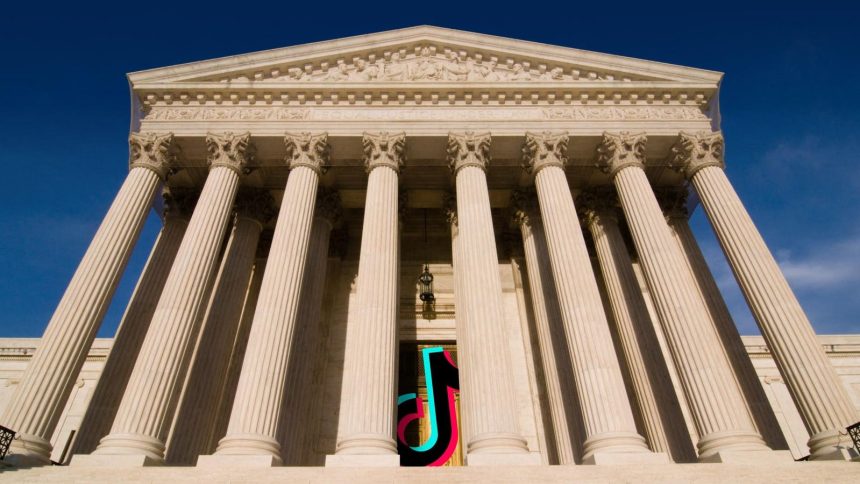The fate of TikTok in the United States hangs precariously in the balance, awaiting a Supreme Court decision that grapples with a fundamental clash between national security concerns and First Amendment rights. At the heart of the matter lies a Congressional law mandating that TikTok’s Chinese parent company, ByteDance, either divest itself of the popular social media platform or face a nationwide ban. This legislative action stems from fears that the Chinese government could exploit TikTok to manipulate American public discourse, sow discord, and undermine trust in democratic institutions. The central question before the Supreme Court is whether Congress can legitimately restrict a speech platform to prevent foreign interference, even if that restriction potentially infringes upon First Amendment freedoms.
Oral arguments before the Supreme Court highlighted the complexities of this unprecedented case. Chief Justice John Roberts, with a touch of humor, acknowledged the very real concern that TikTok could be used to exacerbate divisions within American society. ByteDance’s counsel argued that the government’s attempt to combat foreign speech manipulation is inherently contradictory to the principles of the First Amendment. However, the D.C. Circuit Court of Appeals had previously upheld the law, asserting that limitations on speech can sometimes be necessary to safeguard a healthy free speech environment. This ruling underscores the delicate balancing act between protecting free expression and mitigating the risks of foreign influence.
The case also raises critical questions about the power wielded by a small number of tech companies over the information consumed by Americans. The Supreme Court’s previous ruling in the NetChoice Cases affirmed the First Amendment right of American tech giants to curate content, essentially choosing which messages to promote or suppress. However, this right is not extended to foreign tech giants, particularly those perceived to be under the influence of adversarial governments. Congress, in passing the TikTok law, distinguished between the editorial control exercised by American companies, considered protected speech, and the same actions performed by foreign entities like ByteDance, deemed a national security threat.
This distinction creates an environment of opacity for social media users, who are often left in the dark about the forces shaping the information they encounter. Recent actions by Meta, formerly Facebook, underscore this lack of transparency. The company announced significant changes to its content policies, seemingly aimed at appeasing the incoming Trump administration. Because Meta is a domestic company, these actions are viewed as an exercise of its free speech rights. However, the potential for political influence on content moderation decisions raises concerns about the integrity of information ecosystems.
The TikTok bill itself doesn’t impose an outright ban; it offers ByteDance the option of selling the platform. However, ByteDance has resisted a sale, preferring to exit the U.S. market altogether. This stance is complicated by the Chinese government’s prohibition on the sale of TikTok, placing ByteDance in a precarious position. Defying the Chinese government could jeopardize the company’s operations and the safety of its employees. This creates a high-stakes game of chicken between the U.S. and Chinese governments, with ByteDance caught in the middle. The Solicitor General urged the Supreme Court not to back down, suggesting a temporary ban might compel ByteDance to reconsider a sale.
The potential consequences of the law taking effect are significant. TikTok would not only disappear from app stores but would likely cease to function in the United States altogether. The law would compel all U.S. companies supporting TikTok’s operations, from cloud providers to content delivery networks, to sever ties. The Supreme Court has several options to prevent the law from taking effect, including ruling it unconstitutional or issuing a temporary stay. A final decision is expected swiftly, given the impending January 19 deadline. If the law is upheld, TikTok will at least temporarily go offline, though the President could grant a short-term extension for sale negotiations. However, unless the Court invalidates the law, the long-term future of TikTok in the U.S. remains uncertain, hinging on whether ByteDance chooses to divest or accept a permanent ban.



